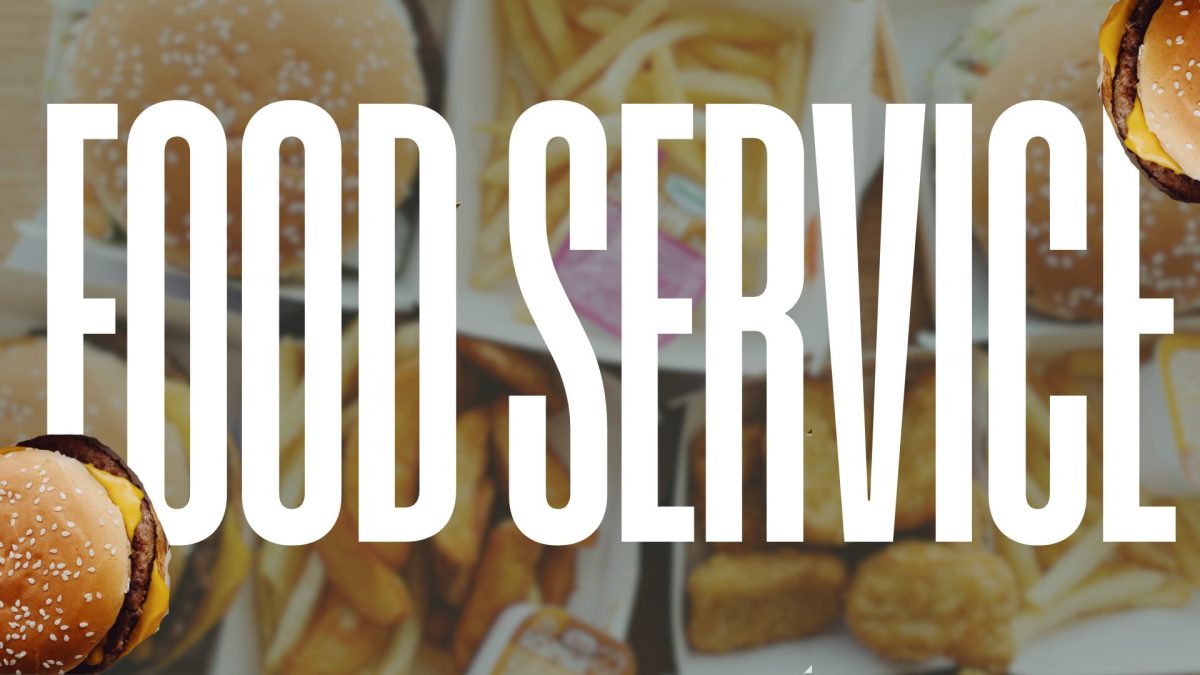In 2021, I made the life-altering decision to enter the food service industry. After turning 17 years old, like many young adults my age, I was in desperate need of cash and some degree of financial independence. Fortunately for me, during COVID-19 a local Persian restaurant that I grew up eating at with my family had a job opening for a busser, or basically a jack-of-all-trades.
COVID-19 heavily affected the food service industry, as many restaurants were forced to close or hire limited and more specialized employees. I would soon learn that a busser is a real team player at the bottom of the “restaurant food chain.” It is someone who sits, clears and cleans tables, folds silverware sets, fills up waters, cleans up the bathroom atrocities and quickly picks up a wide array of other roles. This job would shape my values and influence my further entrenchment in the world of restaurants, hospitality and the service industry/people business. I’d gain further experience as a server at a burger restaurant, the type of upscale Midwest joint that was converted and refurbished out of an old automobile garage. While the atmospheres of the fine-dining Persian restaurant and an upscale “greasy spoon” were a bit different, the skills I learned on the job not only applied to my adult life, but also translated into my academic pursuits. I think that everyone should take the opportunity to work at a restaurant at some point in their life because it not only develops you as a personable individual, but the stories you have will last a lifetime.
Working in the food service industry exposes you to all types of people and characters. The restaurant industry is not only one of the largest in the United States, but its workforce is also one of the most diverse in both age and racial demographics. At my first food service job in the Persian restaurant, besides the owner’s husband who helped run the gin bar, I was the whitest worker in the establishment. The kitchen staff consisted of a hardworking and dedicated team of hijabis, Muslim women who wear the traditional head scarf. While the majority of this restaurant’s workforce predominantly spoke Farsi and other languages amongst each other, it required me to push myself out of my comfort zone to develop my own effective communication and teamwork skills when I needed to relay messages from the front of house to the kitchen or back of house. My boss grew up at this restaurant, as her parents started the business. As we folded silverware into the late hours, she gave me encouraging life advice to adjust to young adult life, prepare for college and live up to parental expectations.
In my next food service venture, I was lucky to work my way up the restaurant food chain. As a server, I held more responsibilities as I was handling checks, and keeping customers happy. One part of the job that I learned quickly was handling “hangry” individuals.
Isaac Forson, FCRH ’26, worked at a Häagen-Dazs in Brooklyn. Some difficulties he faced at the job included “bad online orders and people yelling at you over the phone required coming up with a quick remedy and being quick on your feet.”
Multitasking with difficult customers and assigned tables in your section is a big component of the job. For me, managing large sections of the restaurants meant that I was dealing with over 20 tables per shift. Creating a mental script assisted me in gaining cash tips and a larger bill upselling millennials artsy alcoholic lemonades and other drinks.
Forson advised, “suggestive talk like name dropping specific items in conversation. Never pushing an item too much. People like it when you say things with a smile. People skills get you an extra tip. I always try to compliment a customer on their hair or tie. It depends on the person.” Skills learned on the job can be applied to other aspects of life.
The ability to multitask, work under pressure and communicate effectively improves significantly while working in food service. One server, FCRH ’25, detailed her own experience working at a fine dining establishment in New York City and what skills she has learned that apply to her daily life. She described, “Not only do I think it’s a lucrative industry that can be really helpful. I believe that it has matured me in many ways. My communication skills, my ability to manage conflict, and time management have all improved. Learning not to buckle under the pressure. It had taught me resilience.”
Working as a server required the memorization of the entire food and drink menu by heart. Knowing the menu or appearing to know the menu helped me not only sell more food and drinks, but it helped me learn how to be more personable to new people.
Working in the food service industry was extremely beneficial to developing myself as a person and improving my work ethic. I learned the value of hard and honest work. Young adults should spend some time working in the food service industry because the skills learned and earned on the job are applicable to most aspects of daily life as a student and contribute to the growth of a well-rounded individual.
Indranil Kar, FCRH ’26, is a political science major from Saint Louis, Mo.















































































































































































































